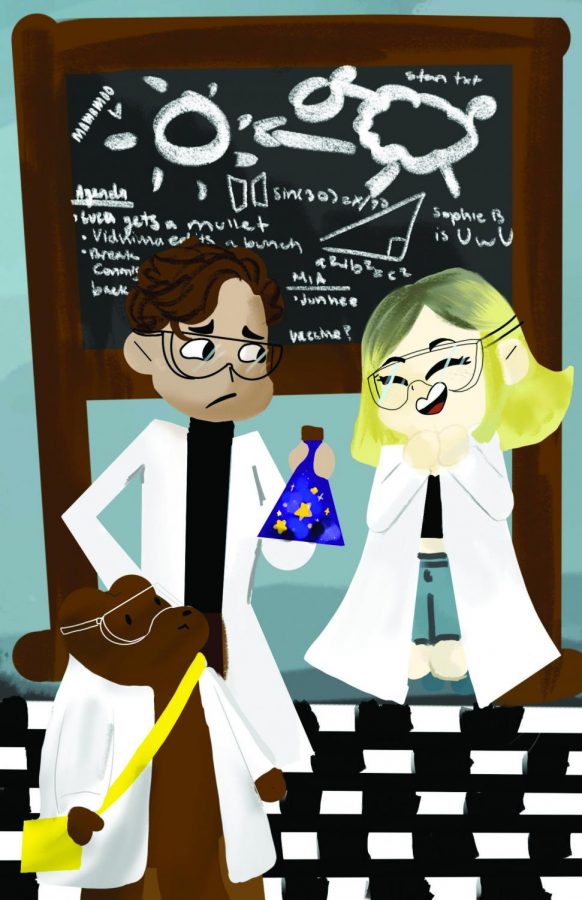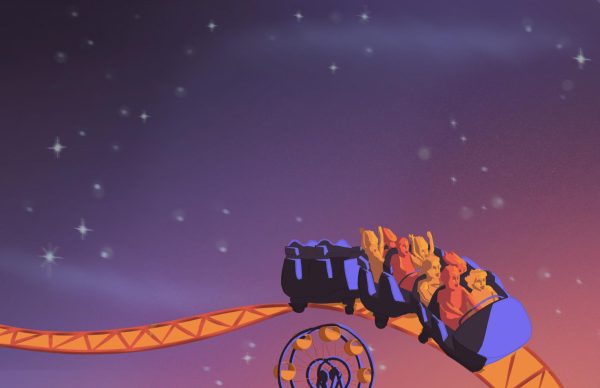Science discredits signs
People believe whatever ideas and concepts support their perspective of the world.
As such, many people have differing opinions on astrology, the study of the movements and relative positions of celestial bodies and the influence they have on human affairs and the natural world.
But whether a person believes in astrology, many can agree that it is an ideal concept for the age of the internet.
Today, a reason why many individuals believe that astrology is easy to adhere to is because the expectations of astrology are so vague, essentially any outcome of an event or any feeling a person has can be explained with astrology.
By separating individuals into their respective astrological signs according to their month of birth, people can receive individualized horoscopes, or a forecast of their future based on the relative positions of the stars and planets at the time of that person’s birth.
Like the moon influences the tides, perhaps there can a more scientifically grounded explanation in the future of how the pull of a planet or the energy of a star influences people in certain ways, but we haven’t got there yet.
“Horoscopes are general enough where you can see yourself in it,” sophomore Thomas Files said. “People like distinguishing themselves by groups and signs to make themselves feel better.”
Astrology has its roots in human civilization for hundreds of years. It has been proven to have existed since before ancient Babylonian times and was long treated as a logical means of connecting our world to humans. Despite existing for so long, it was in the 19th century that astrology really transformed into a field of supernatural and magic.
The idea that people’s signs indicate their character was popularized by esotericist Alan Leo in England in the 1890. Also known as the Father of Modern Astrology, Leo described his concept as serving humanity’s spiritual betterment.
Often, teenagers look to horoscopes for some hope and a reminder that there is more to come in the future.
“People believe in it to find a connection,” junior Hana Coughlin said. “My step mom has a book called ‘The Birthday Book’ or something like that and it has astrological signs for everyday of every month and it’s pretty accurate but still pretty broad.”
Many people also believe that the reason why astrology remains so popular is because of its inherent resonance with human nature.
“I think that humans love patterns,” said Joanna Condon, who teaches biology and biomed at Cal High. “ It is a way we categorize information from the world into meaningful chunks that we can understand. I think people tend to find patterns in seemingly unrelated things.”
While exposure to astrology has allowed people to widely accept it, many do not allow astrological concepts to govern their choices.
“I think everything in the universe is connected. But do I believe that as a Capricorn I should only date Aries? No,” Condon said.
A frequent and well-known scientific study that was conducted between 1981 and 1983 by American physicist and science writer Shawn Carlson disproved astrology.
The purpose of his study was to discover if there was a scientific significance with the participating astrologers and the natal charts, which are maps that display the positions of the planets at the time of someone’s birth.
In addition Carlson wanted to uncover whether study participants could match astrological interpretations, written by the astrologers themselves. The study proved that astrologers could not connect natal charts to their corresponding personality tests better than chance.
“Astrology tells you more about the people who believe in it rather than the world,” Cal High philosophy teacher Tyler Gulyas said. “There is no science behind astrology. When you believe in astrology you use a different side of logic. People need to make meaning in the world and will believe anything to calm their fear.”
Overall, the thought of whether astrology is true is constantly a topic to be discussed.
In one sense, it is used to piece together and elucidate the difficulties or ambigious aspects of our lives. But on the other hand, it has not yet been concretely scientifically grounded.
Despite these differing aspects, astrology remains to be an important part of many lives.
The astroloical language that permeates the texts of the modern era serve as a way to communicate profound ideas and make sense of human experiences that don’t have statistics or explanations.

Michelle Kuperman has been in newspaper since her sophomore year. As a senior she will be editing the Arts & Entertainment section. Her favorite subject...

Michelle Nguyen is a senior at Cal High and is features editor for the Californian Newspaper. She’s also the publicist for Cal High Interact, Interact...




